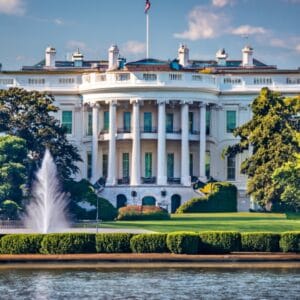The executive branch is one of the three branches of the U.S. government, along with the legislative and judicial branches.
The executive branch is headed by the president, who is elected by the people through the Electoral College.
The president has the power to enforce and implement the laws passed by Congress, as well as to appoint federal officials, conduct foreign policy, and command the military.
The president is assisted by the vice president, the cabinet, and various executive agencies.
Main components of the executive branch:
- The president is the chief executive of the nation and the commander-in-chief of the armed forces. The president can sign or veto bills passed by Congress, issue executive orders, negotiate and sign treaties, grant pardons and clemencies, and nominate federal judges and other officials. The president also delivers the annual State of the Union address to Congress and the nation. The current president is Donald Trump.
- The vice president is the second-highest ranking official in the executive branch and the first in line to succeed the president in case of death, resignation, or removal. The vice president also presides over the Senate and casts a tie-breaking vote when necessary. The vice president also advises and supports the president on various matters and may take on special assignments or duties as requested by the president. The current vice president is J.D. Vance.
- The cabinet is a group of 15 heads of executive departments who advise and assist the president on various issues related to their areas of expertise. The cabinet members are appointed by the president and confirmed by the Senate. They are responsible for overseeing and administering their respective departments, such as defense, education, health, justice, etc. The cabinet also includes some other officials who have cabinet-level rank, such as the White House chief of staff, the director of national intelligence, and the U.S. trade representative.
- The executive agencies are independent federal organizations that perform specific functions or services for the executive branch. They are not part of any executive department and have their own budgets and staffs. Some examples of executive agencies are the Central Intelligence Agency (CIA), the Environmental Protection Agency (EPA), the Federal Reserve Board (FRB), and the National Aeronautics and Space Administration (NASA). The heads of these agencies are appointed by the president, usually with Senate confirmation.
The executive branch plays a vital role in ensuring that the laws of the nation are faithfully executed and that the interests and security of the U.S. are protected at home and abroad.
The White House is official residence and workplace of the president of the United States. It is located at 1600 Pennsylvania Ave NW, Washington, DC, 205001.
